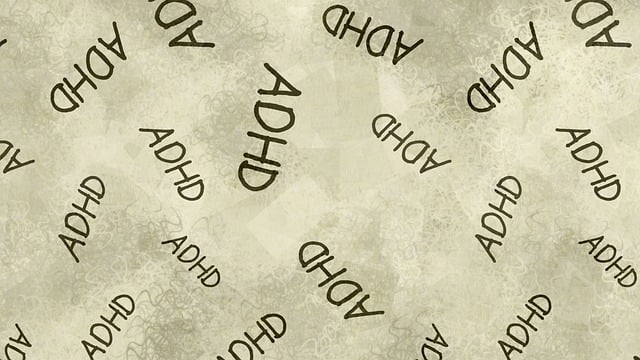Parker Blended Families Therapy (PBF) offers innovative, holistic solutions for blended families, leveraging the RFM (Resources, Strengths, and Needs) model. Through tailored programs like Stress Management Workshops, PBF strengthens communication, fosters resilience, and addresses unique challenges like step-parent integration and mental health stigma. Their data-driven approach includes risk assessments, group discussions, mindfulness practices, and creative outlets to build self-awareness, emotional regulation, and problem-solving skills, ultimately enhancing family bonds and creating a more harmonious home environment.
Resilience is a vital asset for families navigating life’s challenges. This article explores the transformative power of resilience, focusing on the Parker Blended Families Therapy Approach. We delve into how Resource, Strengths, and Needs (RFM) assessment, a cornerstone of this approach, strengthens family bonds. By designing tailored exercises that build resilience, therapists empower families to overcome adversity. This comprehensive guide examines the impact of RFM exercises, offering insights for professionals seeking to enhance their practice in Parker Blended Families Therapy.
- Understanding Resilience and Its Impact on Families
- The Parker Blended Families Therapy Approach
- Incorporating RFM (Resources, Strengths, and Needs) in Family Therapy
- Designing Effective Resilience-Building Exercises
- Implementing and Measuring the Success of RFM Exercises
Understanding Resilience and Its Impact on Families

Resilience is a powerful tool that equips families with the ability to navigate life’s challenges and adapt to change. It involves the process of bouncing back from difficult experiences, fostering strength, and maintaining a sense of hope and positivity. For blended families, understanding and building resilience can be transformative. These families often face unique complexities, including step-parent dynamics, blending existing children with new step-siblings, and adjusting to shared routines.
Parker Blended Families Therapy recognizes the significance of resilience in these households. By implementing tailored exercises and strategies, families can enhance their coping mechanisms and overall well-being. The organization offers various programs, such as Stress Management Workshops, designed to empower individuals and families with effective emotional healing processes. Through these initiatives, blended family members learn valuable skills to manage anxiety relief, improve communication, and strengthen their bond, ultimately fostering a more resilient and harmonious home environment.
The Parker Blended Families Therapy Approach

The Parker Blended Families Therapy (PBF) Approach is a innovative and holistic method designed to strengthen family relationships and foster resilience, especially within blended families. This approach recognizes that modern families come in various forms, including step-parents, blended siblings, and co-parenting arrangements. By combining evidence-based practices with a deep understanding of family dynamics, PBF aims to create a supportive environment where each member feels valued and heard.
Through this approach, mental health professionals facilitate activities and discussions that promote open communication, conflict resolution techniques, and effective risk management planning. By integrating these strategies into therapy sessions, the Parker Blended Families Therapy model helps families navigate complex emotions, minimize potential risks (as identified in risk assessments for mental health professionals), and build strong, resilient bonds. This method encourages every family member to actively participate in problem-solving, ensuring a more harmonious and supportive household environment.
Incorporating RFM (Resources, Strengths, and Needs) in Family Therapy

Incorporating the RFM (Resources, Strengths, and Needs) model in family therapy has been a game-changer for many, especially within the context of blended families, as exemplified by Parker Blended Families Therapy. This approach allows therapists to gain a comprehensive understanding of each family’s unique dynamics. By identifying resources—be it financial stability or strong community connections—therapists can leverage these to enhance the family’s resilience. Additionally, recognizing and building upon familial strengths, such as open communication or shared values, strengthens their ability to cope with challenges.
Addressing needs is another critical aspect. Many blended families face complexities related to step-parents integrating into existing structures and navigating potential mental illness stigma reduction efforts. Therapists can help by identifying unmet needs and providing strategies for better mood management, thereby fostering a more harmonious environment. The Community Outreach Program Implementation within Parker Blended Families Therapy showcases how proactive engagement with the community can further reinforce these positive changes.
Designing Effective Resilience-Building Exercises

Designing Effective Resilience-Building Exercises plays a pivotal role in fostering mental well-being, especially within diverse families like those at Parker Blended Families Therapy. These exercises are tailored to strengthen individuals’ ability to cope with challenges and adapt to change. A successful resilience program should incorporate various activities that promote self-awareness, emotional regulation, and problem-solving skills. For instance, group discussions, mindfulness practices, and creative outlets can foster a sense of belonging and empowerment.
When creating such exercises, mental health professionals must conduct a thorough risk assessment to ensure safety and effectiveness. This involves identifying potential triggers and tailoring activities to suit individual needs. Incorporating confidence-boosting strategies alongside self-awareness exercises can significantly enhance participants’ resilience. By fostering open communication, encouraging positive self-talk, and providing practical coping mechanisms, therapists enable clients to navigate life’s curveballs with greater equanimity.
Implementing and Measuring the Success of RFM Exercises

Implementing and measuring the success of RFM exercises is a multifaceted process that requires careful planning and consistent evaluation. At Parker Blended Families Therapy, we emphasize the importance of tailoring these exercises to meet the unique needs of each individual or family. The first step involves setting clear objectives aligned with enhancing inner strength development and fostering mental wellness. This could include improving self-esteem, cultivating coping mechanisms for stress, and promoting resilience in the face of challenges.
Measuring success goes beyond mere participation. We employ various methods to assess the impact of RFM exercises, such as pre-post assessments, feedback forms, and observations. By tracking progress over time, we can identify what works best for different individuals or groups, ensuring continuous improvement in self-esteem improvement and overall mental wellness podcast series production. This data-driven approach allows us to refine our strategies, making the RFM exercises more effective and impactful.
The implementation of Parker Blended Families Therapy’s RFM framework offers a structured approach to enhancing family resilience. By identifying resources, leveraging strengths, and addressing needs, therapists can design tailored exercises that empower families to navigate challenges more effectively. This holistic strategy, grounded in the RFM model, not only strengthens familial bonds but also fosters long-lasting adaptability and well-being.














